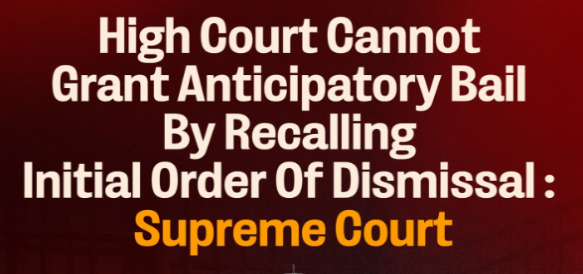PREVIOUS
Anticipatory Bail in Caste Crime Case
September 23 , 2025
42 days
311
0
- The Supreme Court of India cancelled the anticipatory bail granted to an accused in a caste crime.
- The case involved allegations under the Scheduled Castes and the Scheduled Tribes (Prevention of Atrocities) Act, 1989.
- A First Information Report was filed alleging assault, caste-based abuse, looting, molestation, and threats linked to an electoral dispute.
- The Additional Sessions Court rejected anticipatory bail based on cattiest intent and corroboration.
- The High Court later granted anticipatory bail, terming the case politically motivated and exaggerated.
- The Supreme Court held that Section 18 of the Act bars anticipatory bail where a prima facie case is made out.
- Section 18 excludes the applicability of Section 438 of the Code of Criminal Procedure, which allows anticipatory bail.
- Assault and caste insults occurring in public view fall under the Act’s definition of offences.
- Coercion or retaliation linked to voting against Scheduled Caste or Scheduled Tribe members attracts specific provisions of the Act.
- The Supreme Court termed the High Court’s bail order a manifest error and jurisdictional illegality.
- The ruling reaffirmed the constitutional validity of the bar on anticipatory bail to protect vulnerable communities under the Act.

Leave a Reply
Your Comment is awaiting moderation.


